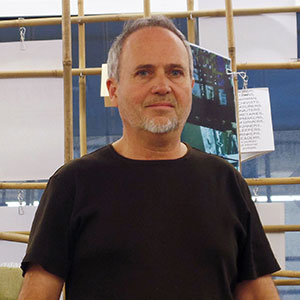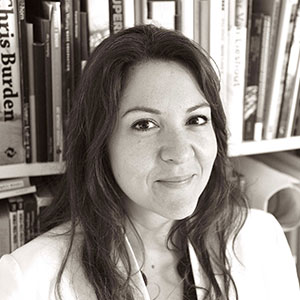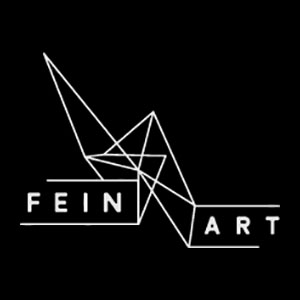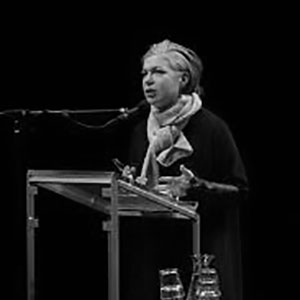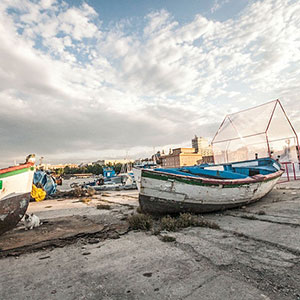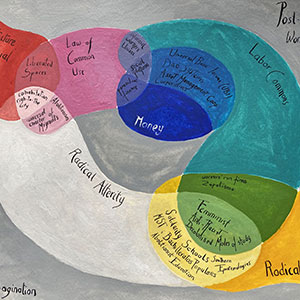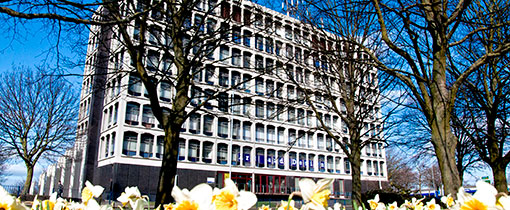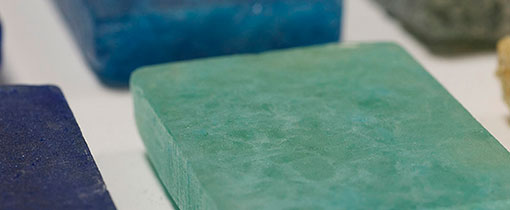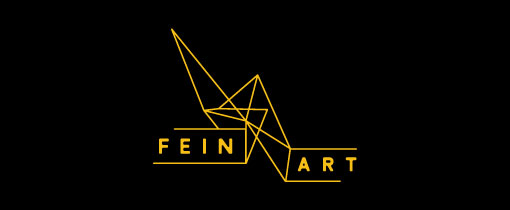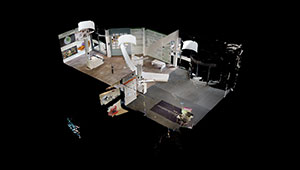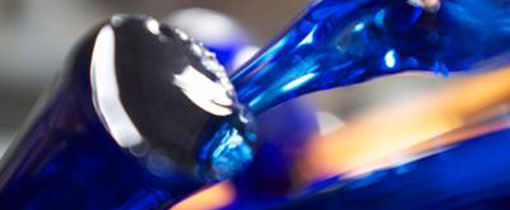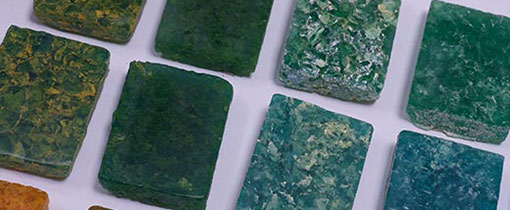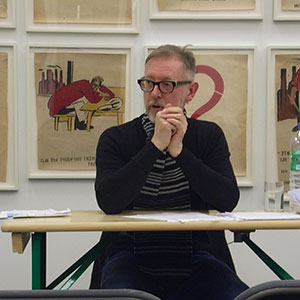
From Art Institution to Community Portal
Wolverhampton School of Art / Centre for Art, Design, Research & Experimentation / FEINART
By Maria Hlavajova of basis voor actuele kunst, Utrecht (BAK)
Abstract
Let us think of instituting otherwise as a process of institution-making that unfolds through a succession of interconnected “instituent” events, engaging simultaneously with disruption and sustainability, proximity and distance, and movement and transition. This process presupposes solidarity with a community of cultural practices and forms of life which, driven by a deep disenchantment with the conditions of the collapsing world, holds the institution to account and pressures it to “always newly start again.” Such an art institution to come emerges at the transversal overlaps of art, embodied research, theory, lived experience, memory, fiction, and social action. With a focus on relations and coalitions, it strives to provide space and time for critical engagement with, and commitment to, one another through collective thinking, listening, imagining, learning, and doing. It restores the question of justice back into aesthetics, epistemology, and action. It seeks to peripheralize the western-modern (art) institutionand western-modern hegemony as such and engage humbly in conversation with other archives of knowledge, other thoughts, and other worlds.
The present, however, defutured by perpetual catastrophes of racial and extractivist capitalism, poses an additional set of challenges. If instituting otherwise is clearly less about institution than about creating conditions for how to be together otherwise, the task ahead is to envision and actualize the pathways toward another future. Could we, then, imagine the art institution as a community portalan interstice, a tiny intervening space of rehearsal for moving between one world and the next, between the present and the not-yet? A porous gateway out of the “normal order of things,” can the portal disrupt the spatial and temporal politics of this “normalcy” to open a (momentary) possibility to leave its unfreedoms behind? Can it be place to mobilize yet unforeseen forms of encounters and otherwise improbable political subjectivities? What can be learned in such encountersthe instances of collective anticipatory learning for and of the not-yet? Which alternative imaginaries will emerge from such being together? And can they be not merely prefigured and rehearsed, but also lived, as if that were possible?
Speaking from within these aesthetico-political experimentations underway at BAK, basis voor actuele kunst, Utrecht, Maria Hlavajova will share tentative notes that issue from a collective, collaborative process and ongoing conversation within the BAK community. She will further draw on learnings from BAK’s ongoing research itinerary Propositions for Non-Fascist Living (2017-ongoing), and in particular the project Trainings for the Not-Yet (2019-2020), co-convened with artist Jeanne van Heeswijk, as well as a continuing exchange with BAK’s 2020 Fellows.
Biography
Maria Hlavajova is founding General and Artistic Director of BAK, basis voor actuele kunst, Utrecht, since 2000. In 2008–2016, she was Research and Artistic Director of the collaborative research, exhibition, and education project FORMER WEST, which culminated in the publication Former West: Art and the Contemporary After 1989 (which she co-edited with Simon Sheikh, 2016). Hlavajova has instigated and (co-)organized numerous projects at BAK and beyond, including the series Propositions for Non-Fascist Living (2017–ongoing), Future Vocabularies (2014–2017), New World Academy (with Jonas Staal, 2013–2016), among many other international (research) projects. Her curatorial work includes Call the Witness, Roma Pavilion, 54th Venice Biennale, 2011; Citizens and Subjects, Dutch Pavilion, 52nd Venice Biennale, Venice, 2007; and Borderline Syndrome: Energies of Defense, Manifesta 3, Ljubljana, 2000. Among publications she edited are Toward the Not-Yet: Art as Public Practice (with Jeanne van Heeswijk and Rachael Rakes, forthcoming 2021); Deserting from the Culture Wars (with Sven Lütticken, 2020); Propositions for Non-Fascist Living: Tentative and Urgent (with Wietske Maas, 2019); Posthuman Glossary (with Rosi Braidotti, 2018); and Marion von Osten: Once We Were Artists (with Tom Holert, 2017). She is Lecturer at HKU University of the Arts, Utrecht. In addition, Hlavajova is co-founder (with Kathrin Rhomberg) of the tranzit network. Hlavajova is a member of the Supervisory Board of the European Cultural Foundation, Amsterdam, and of the Advisory Boards of Bergen Assembly, Bergen and IMAGINART, Imagining Institutions Otherwise: Art, Politics, and State Transformation, University of Amsterdam. She lives and works in Amsterdam and Utrecht.
More Talks
FEINART
FEINART is an ambitious Innovative Training Network supported by the Marie Skłodowska-Curie Actions of Horizon 2020 and led by the University of Wolverhampton, committed to providing high quality training for 11 Early Stage Researchers (ESRs) to complete PhDs in the area of art and social engagement.
FEINART Lecture Series
The FEINART LECTURE SERIES will discuss the role, impact, and theoretical implications of socially engaged art. This series of public talks is organized by the Innovative Training Network FEINART (The Future of European Independent Art Spaces in a Period of Socially Engaged Art) jointly led by the Universities of Wolverhampton (coordinator), Zeppelin University (direction of the training programme) University Iceland, and University of Edinburgh.

This project has received funding from the European Union’s Horizon 2020 research and innovation programme under the Marie Skłodowska-Curie grant agreement No 860306
Centre for Art, Design, Research & Experimentation

The Centre for Art, Design, Research & Experimentation accommodates researchers within the Wolverhampton School of Art. It was established in 2006 to explore and develop the beneficial effect of art and design upon society. The Centre is clustered into three focused areas of research interests: Art, Society and Social Practice; Digital Technology Theory and Practice; Material and Theoretical Practice.


/prod01/wlvacuk/media/departments/media-and-communications/images-18-19/220325-Engineers_teach_thumbail.jpg)
/prod01/wlvacuk/media/departments/media-and-communications/images-18-19/BBR_logo_large.jpg)
/prod01/wlvacuk/media/departments/media-and-communications/images-18-19/Wolves-Story-Thumb.jpg)
/prod01/wlvacuk/media/departments/media-and-communications/images-18-19/220505-BAS9-School-Showcase-Resized.jpg)
/prod01/wlvacuk/media/departments/business-solutions/images/banners/business-we-back-you-500x250.jpg)
